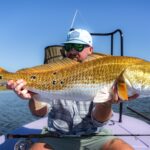
Louisiana Bull Reds Up for Harvest Again: H.B. 604 Must Not Pass
Photo Credit: Carter Abramson | Trevor Johnson Every now and then, we encounter something so
Feature Photo: Capt. Perry McDougald and angler showing off little tunny on a guide trip.
Little Tunny has received big attention on the East Coast. Recently, the spotlight has been on North Carolina as the North Carolina Marine Fisheries Commission held another meeting with little tunny management on the docket. The second round of digital public comment for false albacore has concluded and responses were overwhelmingly in support of False Albacore management.
Out of nearly 230 comments submitted, almost 75% of those were directed at albie management. Of the nearly 170 albie comments, 99.5% were positive comments in support of management. There was only 1 single comment in opposition. The turnout of support by advocates in the digital comment window is undeniable. When little tunny needs your voice, you all show up. We’re insanely proud of your commitment.
For those who missed the campaign, here is some background info to get you up to speed on the issue, followed by next steps:
The North Carolina Marine Fisheries Commission held a meeting last February to open the discussion about guard rail management for False Albacore: The three options were essentially do nothing, monitor the situation , or put in guardrail management. That management would consist of the following: if landings exceed 200% of a five-year average, take action. That action would be implementing regulations including a 3500lb trip limit for commercial vessels and a 10 fish per person limit (max of 30 per vessel) for recreational vessels. Option 3 (take action) passed by a 5-4 vote. For the very first time, false albacore finally have some management momentum at the state level.
False albacore are a tremendously important recreational fish species for anglers and fishing-related businesses from Massachusetts to Florida. Our guides and members rely on this species, especially in recent years when striped bass and other inshore species have been less abundant. ASGA believes that false albacore deserve guardrail management at a minimum. This species drives a large economy from Florida to Massachusetts. While there is little scientific information on this species at this time, ASGA is thrilled to be conducting a false albacore acoustic tagging study in Massachusetts waters with several key partners—we hope that this information can be used by fishery managers to better understand the species and encourage precautionary management for this hugely important recreational species.
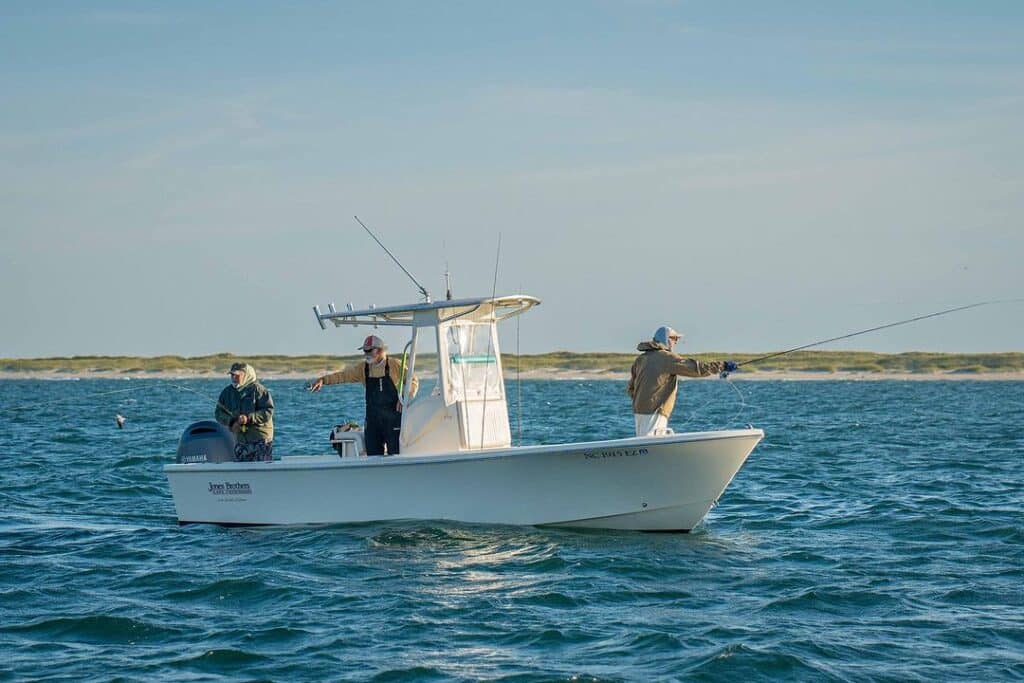
What’s next?
Now all eyes shift to the Commission meeting, which will be held in-person Aug. 21-23 at the Hilton Raleigh North Hills, in Raleigh, NC. The meeting will also be live streamed on YouTube. You can tune in by clicking here. There will be public comment sessions at 6pm on Wednesday, and at 9am on Thursday. If you missed your chance to submit a digital comment and live nearby, you can still attend and have your comment on the record in support of albies.
A final call on the rulemaking will occur on Friday. You can watch that here. Additionally, ASGA will have rapid reaction resources available after the meeting. We look forward to hearing the Commission response to the hundreds of thoughtful, educated stakeholders who spoke up on behalf of our incredible false albacore fishery. You can access a full report of all the digital comments by clicking here. We will conclude this albie update by shining a spotlight on a few of great comments from the digital portal:
John Mauser, a full-time guide in North Carolina, spoke up for the resource so many local businesses rely on:
“…A large portion of my family’s income comes from our False Albacore season in NC. False Albacore are too important to rec anglers, guides and commercial fishermen for them to go on without proper management. This is a species that will eventually be targeted on a large scale that will devastate the population if some management rules are not set into place. I believe that if we set the example in False Albacore management, other states will follow…”
Ronald Contrelli from New York called out the the immense value of false albacore to businesses around new england and the importance of their abundance with other inshore fisheries collapsing:
“Albies should be managed for abundance. In NY, guides and tackle shops count on Albie fisherman for income. As a fisherman, I target Albies about 50 trips per season. We don’t want to wait to it’s to late to properly manage this fishery. Just look at the collapse of our Striped bass fishery. Please help protect the False Albacore”
Rob Glasser from South Carolina emphasized his love for false albacore that drives an annual trip from his group that stimulates local economy:
“Every year, 8-10 of us come to Beaufort solely to albie fish. We rent a house, go to restaurants and fish 4-5 days. We pay dockage and buy fuel. Last year was the worst year in recent memory. […] More and more pressure is being placed on all our fisheries, and some serious thought needs to be given to the speedster of the ocean.”
John Wolfstaetter from New York highlighted a similar importance of false albacore:
“I trailer my boat down to Harkers Island each year and rent a house for a week to target [albies]. For the past few years, my group has consisted of three other boats and houses. For 2024, we are expanding to a total of five boats and houses. I look forward to this trip each year. False Albacore are an important recreational fish species for both anglers and fishing-related business. […] Due to their importance, I believe that False Albacore deserve to have some guardrails put in place to ensure their abundance moving forward.”
Jack Nickens from North Carolina recognized the economic impact that false albacore have on the local economy:
“Growing up, I dreamed of going false albacore fishing on a fly rod. […] My eyes were opened to just how amazing these fish were. I saw the coastal town come back to life in October and November as anglers headed to the coast. I support False Albacore fisheries management not just because I love fishing for them, but because I know the livelihood of so many depend on the fishery.”
Scott Davis, a well known voice on ASGA’s Guide Post Podcast, focused on the coastal connectivity in his comment:
“…Albies are too important to recreational fisherman to be overlooked. I have traveled to Harkers Island for over 20yrs with the sole purpose to fish for False Albacore. They connect the whole coast and we, as anglers and conservationists, must step up to protect this overlooked fish.”
Chris Thompson, representing Cape Lookout Albacore Foundation summarized the importance of the species and it’s impact on coastal North Carolina:
“[…] We represent a community of anglers who congregate in the waters near Cape Lookout in their travels up and down the East Coast in pursuit of this magnificent species. These anglers inject funds into the local and state economy by employing guides, reserving hotels, dining at eateries, and making retail and fuel purchases. The Cape Lookout Albacore Foundation is advocating for precautionary management of the fishery. We recognize the species may not currently be in crisis, but history shows preventive action is preferable to remedial action. […] Available evidence suggests the fisheries along the entire coast are interconnected. Preventive, precautionary management is recommended to ensure the fishery remains viable. Let North Carolina lead the way in managing this incredible resource.”

Photo Credit: Carter Abramson | Trevor Johnson Every now and then, we encounter something so
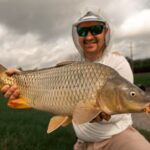
This past weekend, ASGA proudly sponsored the Dirty Carp Tournament in Louisiana — and no, you didn’t misread that.
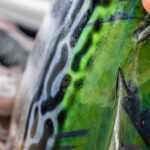
After years of data pouring in from The Albie Project, advocacy, persistence, and support from
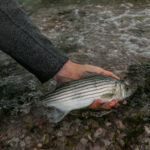
This morning, the Connecticut Environment Committee held a hearing on House Bill 6248, a bill
We rely on our members and donations to keep fighting for a sustainable tomorrow in marine conservation.
Notifications
2 Responses
Glad some of us are recognizing there is a problem and now taking steps to manage and hopefully fix it.
The Albies never showed up on the North Fork of Long Island. A complete vanishing act on the east end. Not 1 person in my club.( North Fork Anglers ) caught a fish. Friends outside the club have also commented on the dismal season. If you were to ask the Captains who fish this area. They would probably say, they caught 98% less fish this season. They did show at Montauk for a short while. Now I have heard many fisherman state. It’s just an off year. What is your opinion at the ASGA ?